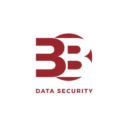Cyber Security Companies
This listing section is curated carefully to help you to quickly browse and find the best cyber security software & tools for your needs. Let’s browse and find the right software for your business in this comprehensive listing.
Featured Companies
A-LIGN
A-LIGN is a leading cybersecurity and compliance solutions provider, offering services such as SOC 2, PCI DSS, ISO 27001 assessments, and more. With a…
VISIT WEBSITEAbnormal Security
Abnormal Security is a cybersecurity company that employs advanced AI technology to revolutionize email security. Their platform proactively detects a…
VISIT WEBSITEAppGuard
AppGuard is a leading cybersecurity company known for its innovative endpoint protection solutions. Their “zero-trust” approach blocks unauthorized applications, while behavioral intelligence identifies and neutralizes potential threats proactively. The user-friendly interface ensures effortless integration and scalability, making it an ideal choice for businesses of all sizes. AppGuard’s robust ransomware protection thwarts encryption attempts, providing businesses with added security against this growing threat. With a commitment to staying ahead of evolving cyber threats, AppGuard empowers organizations and individuals to navigate the digital world with confidence and peace of mind….
VISIT WEBSITEEditor's Choice
Cisco Umbrella
Cisco Umbrella is a comprehensive cybersecurity solution that enhances digital protection for organizations. Its Secure Web Gateway filters internet t…
VIEW DETAILSCheck Point
Check Point, a global cybersecurity leader, safeguards the digital realm with comprehensive software, hardware, and combined security solutions. With …
VIEW DETAILSCato Network
Discover Cato Networks, a visionary in Secure Access Service Edge (SASE) technology, revolutionizing cybersecurity. With a unified cloud-based platfor…
VIEW DETAILSBugcrowd
Explore the inspiring evolution of Bugcrowd, a cybersecurity company founded in 2011 in Sydney, Australia. Learn how Bugcrowd has transformed cybersec…
VIEW DETAILS
Trending Companies
Cookiebot
Cookiebot is a leading technology company that offers online privacy and compliance solutions. Their platform helps businesses manage cookies, protect…
VIEW DETAILSCato Network
Discover Cato Networks, a visionary in Secure Access Service Edge (SASE) technology, revolutionizing cybersecurity. With a unified cloud-based platfor…
VIEW DETAILSBroadcom
Broadcom, founded in 1991, is a leading semiconductor and infrastructure software solutions provider. Their journey began with groundbreaking inventio…
VIEW DETAILS3B Data Security
3B Data Security is a cyber security company that provides a range of services to help businesses protect their sensitive data. …
VIEW DETAILSAll Listed Companies A to Z
View All PostsSababa Security
Sababa Security is an Italian cyber security provider of security products, training, and managed services to protect diverse IT and OT environments a…
VIEW DETAILSSecureTeam
SecureTeam is a UK-based information security practice that provides comprehensive cyber security solutions to organizations of all sizes and sectors….
VIEW DETAILSSentryBay
SentryBay is a cyber security company that provides innovative solutions to help enterprises and remote workers protect their endpoints from cybersecu…
VIEW DETAILSCyber Tech Security
Cyber Tech Security is a reputable company offering comprehensive security solutions to businesses across various industries. …
VIEW DETAILSCyber Security Solutions and Services
The following cyber security firms are experts at foreseeing, mitigating, and neutralising cyber threats, allowing their clients and the client’s customers to concentrate on offence rather than defence.
Why is Cyber Security Important for Companies?
Cyber attacks on small and medium-sized businesses are on the rise. According to a survey by CyberEdge Group in 2021, cyber attacks have compromised 86% of enterprises in that year alone, a rise of 24% over the preceding seven years. Owners and executives in businesses are aware that they need to adopt security measures, yet they often fail to adequately prepare for the risks they face.
Although it can save time, money, and provide peace of mind, many people still believe that employing full-time cyber security specialists is too costly. Those who work in cyber security full-time are aware of how serious a security breach can be. These experts understand the value of cyber security and can assist businesses of any size prevent attacks. As a result of their knowledge, the company can avoid losing money and might even survive a catastrophe.
How Cyber Security Companies Work?
Businesses rely on cyber security firms to keep them safe from online dangers. They aid in researching and developing new tools and products that can protect an organization’s digital holdings. In addition, they form partnerships with companies to provide services such as penetration testing, vulnerability analysis, and system audits to protect against any potential dangers to business operations.
What Do Cyber Security Companies Do?
One of the most sought-after offerings from cybersecurity firms is outsourced IT and managed services. Companies that don’t have in-house cybersecurity experts can still ensure their data is secure by outsourcing to a managed service provider. Cybersecurity businesses are compensated to oversee the maintenance and support of all the systems within an enterprise’s network. The cyber security firm handles everything, from keeping computers up-to-date and secure to restoring deleted files and fixing broken software. The fundamental advantage of this arrangement is that small and medium-sized businesses (SMBs) can avoid the high initial expenditures of employing and training their own in-house cybersecurity professionals.
Penetration testing is undertaken to discover the networks and devices vulnerable to threats that require security updates. Depending on the extensive exam, this could take a few days to several months.
The customer determines the test scope and lists out the systems and processes that will be tested. Cyber security organizations that do penetration testing cannot go beyond the boundaries put down by the client. This process is to secure the integrity of the company’s data.
An attacker attempts to break into a client’s network or web app to identify vulnerable resources. The organization can take the necessary steps to strengthen its defenses once it has determined which systems are vulnerable and the severity of the risk associated with those systems.
Many cybersecurity firms also provide clients with security audits to see if their systems are appropriately protected. While this service and penetration testing aim to protect against security flaws, they go about it differently. Penetration testing aims to uncover holes by trying to break the scoped out network or device. On the other side, systems auditing is done to evaluate whether the client’s cyber security policies, protocols, and technologies are consistent with the legal requirements and industry standards.
To ensure compliance with the Health Insurance Portability and Accountability Act’s (HIPAA) technical, physical, and administrative safeguards, as well as training and enforcement of the standards, most health insurance providers undertake an audit.
The cyber security industry is rife with R&D-only firms. They create security applications and licence them to other businesses in the cybersecurity industry or to their own customers. Products in this category can be anything from analysis software to firewalls and endpoint security programmes to email analysis programmes and system monitoring utilities.
They regularly enhance their tools with specialized research teams that monitor emerging cyber risks and strategies to control them.







































